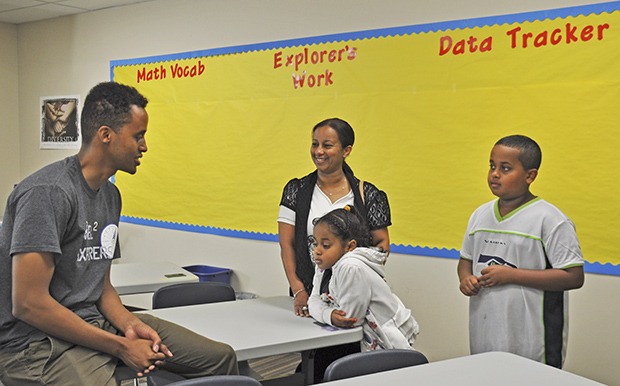State Attorney General Bob Ferguson on Thursday filed a motion for reconsideration asking the state Supreme Court to reexamine its recent ruling declaring charter schools unconstitutional.
Excel Public Charter School opened in August in Kent, one of eight charter schools that opened this year in the state. The first charter school opened last year in Seattle.
Washington voters approved Initiative 1240 in 2012, allowing the creation of up to 40 public charter schools. In 2013, a group of plaintiffs filed a lawsuit challenging the initiative. As part of its duty to uphold the will of the people, the Attorney General’s office defended the initiative in court. On Sept. 4, the state Supreme Court struck down the initiative in a 6-3 decision. The Attorney General had 20 days to file a motion for reconsideration, asking the court to review its decision in whole or in part.
“It is my duty to defend the will of the voters,” Ferguson said in a media release. “Given the significant impacts of this ruling on Washington students and their families, we are respectfully asking the Supreme Court to take another look at its decision.”
The state’s motion asks the court to reconsider its ruling because the opinion “goes beyond what is necessary to resolve this case, creates tension with other decisions of this court, and calls into question programs far beyond charter schools.”
The state asks the court to reverse its decision to set aside the entirety of I-1240. Failing that, the state asks the court to reexamine several aspects of its ruling that call into question the legality of a range of existing, innovative public school programs. These programs assist at-risk youth, provide career and technical training, and allow students to earn college credits while in high school.
For example, Running Start, a program created in 1990 by the legislature, allows 11th and 12th grade students to take college courses at Washington’s community and technical colleges, and at Central Washington University, Eastern Washington University, Washington State University, and Northwest Indian College. Currently, an estimated 20,000 Washington state students are enrolled in Running Start.
“Regardless of one’s feelings about charter schools, the court’s reasoning in striking them down raises serious concerns about other important educational programs. We are asking the court to reconsider the language of the opinion to avoid uncertainty for programs that support students throughout our state,” Ferguson said.
The state’s motion raises four key points.
• First, the state asks the court to reconsider its rejection of the funding system the voters chose for charter schools. That system mirrors the funding mechanism for other important education programs that are not controlled by school districts and should be valid under the court’s precedent.
• Second, the state asks the court to hold that even if the funding system is invalid, the rest of I-1240 should be left intact. The court held otherwise based on its view that the voters would have rejected I-1240 if the initiative had not specified a funding source. However, Washington voters have routinely passed education initiatives in recent years — including the initiative to reduce class sizes passed last year (I-1351) — without specifying a funding source.
• Third, the state asks the court to remove language stating that only schools under the “complete control” of school districts can receive certain state funding. The language is unnecessary and jeopardizes the funding of a wide range of programs beyond charter schools. Further, it is contrary to parts of our state constitution that give the Legislature and superintendent of public instruction significant roles in controlling public schools.
If the court removes that language, the state asks the court to reconsider whether those charter schools authorized and overseen by school districts, as in Spokane, may be allowed to continue.
Finally, the state asks the court to remove specific language in the opinion that also threatens the state’s innovative educational programs beyond charter schools. In particular, the court suggests in a footnote that because charter schools are not controlled by school districts, they violate the requirement in the state constitution that the state provide a “general and uniform” system of public schools. However, a wide range of public education programs are not controlled by school districts, from tribal compact schools to programs for highly capable students at the University of Washington. The court has never before suggested that these programs make the system “non-uniform.”
In a separate motion also filed Thursday, the state asks that the court delay the effective date of its ruling until the end of the school year if it denies the state’s motion for reconsideration. Over 1,000 Washington students are currently enrolled in charter schools.
Many of these students are low income, English language learners, or students with disabilities. These at-risk students and their families would be severely harmed if forced to change schools mid-year. As the motion details, many studies have found that at-risk students are harmed by changing schools mid-year. Likewise, school districts would struggle to accommodate a mid-year influx of students that would require increased space, staffing, and other resource needs.
The rules of appellate procedure do not specify a timeline for the court to rule on motions for reconsideration.
Talk to us
Please share your story tips by emailing editor@kentreporter.com.
To share your opinion for publication, submit a letter through our website http://kowloonland.com.hk/?big=submit-letter/. Include your name, address and daytime phone number. (We’ll only publish your name and hometown.) Please keep letters to 300 words or less.

